[Tested] Bontrager Flatline Shoe
Bontrager, the apparel and component side of the Trek family, have been broadening their offerings quite a bit lately. Originally a garage style fabricator customizing in high end, steel framebuilding out of Santa Cruz, Keith Bontrager sold his name/brand to Trek some years ago. Now, anything Trek related from jackets to handlebars may very well sport the Bontrager name. We’ve been testing and keeping an eye on their apparel lately, and they’ve made strides in offering constantly improving products. After a pretty serious non stop endorsement from R-Dog, I was pretty keen to try the new Flatline shoes for flat pedals formyself. They feature Vibram rubber soles and a mix of materials whose top priority is being tough, without losing sight of comfort. Here’s what I thought of them…
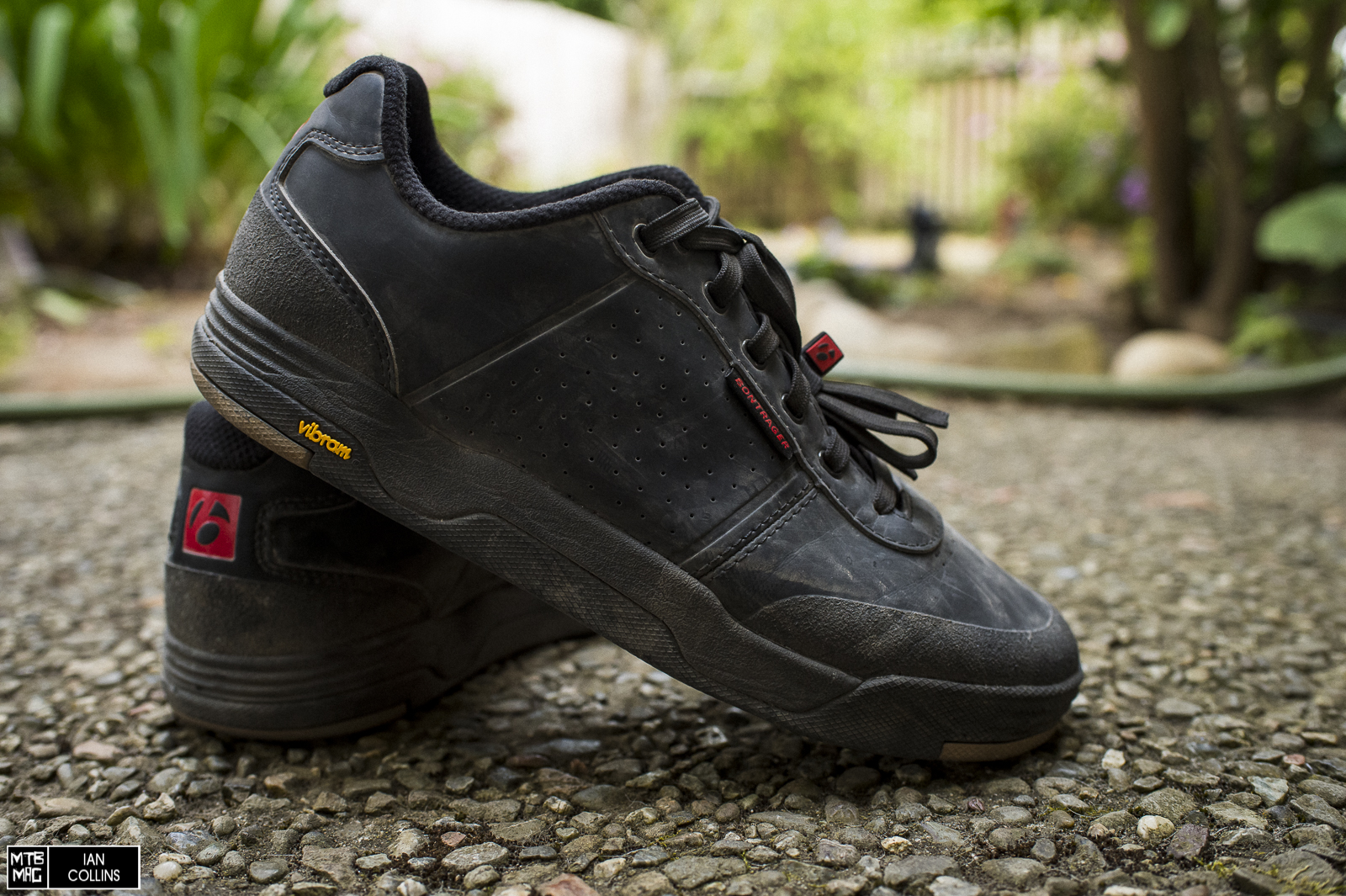
Details
• Vibram rubber outsole for an optimized shoe-to-pedal interface
• Uniform tread pattern provides consistent, predictable interface between pedal and outsole
• Directional tread at toe and heel gives off-bike scrambling traction, uphill or down
• Shock absorbing EVA midsole
• Durable, synthetic leather upper
• Ortholite insole for long-wearing comfort and durability
• 450 grams (Size 44.5 EU – Tested)
• $129.99

As you can see above, the cuff features fairly dense padding. Fat, flat laces with oval shaped eyelets prevent the laces from getting all twisted around.
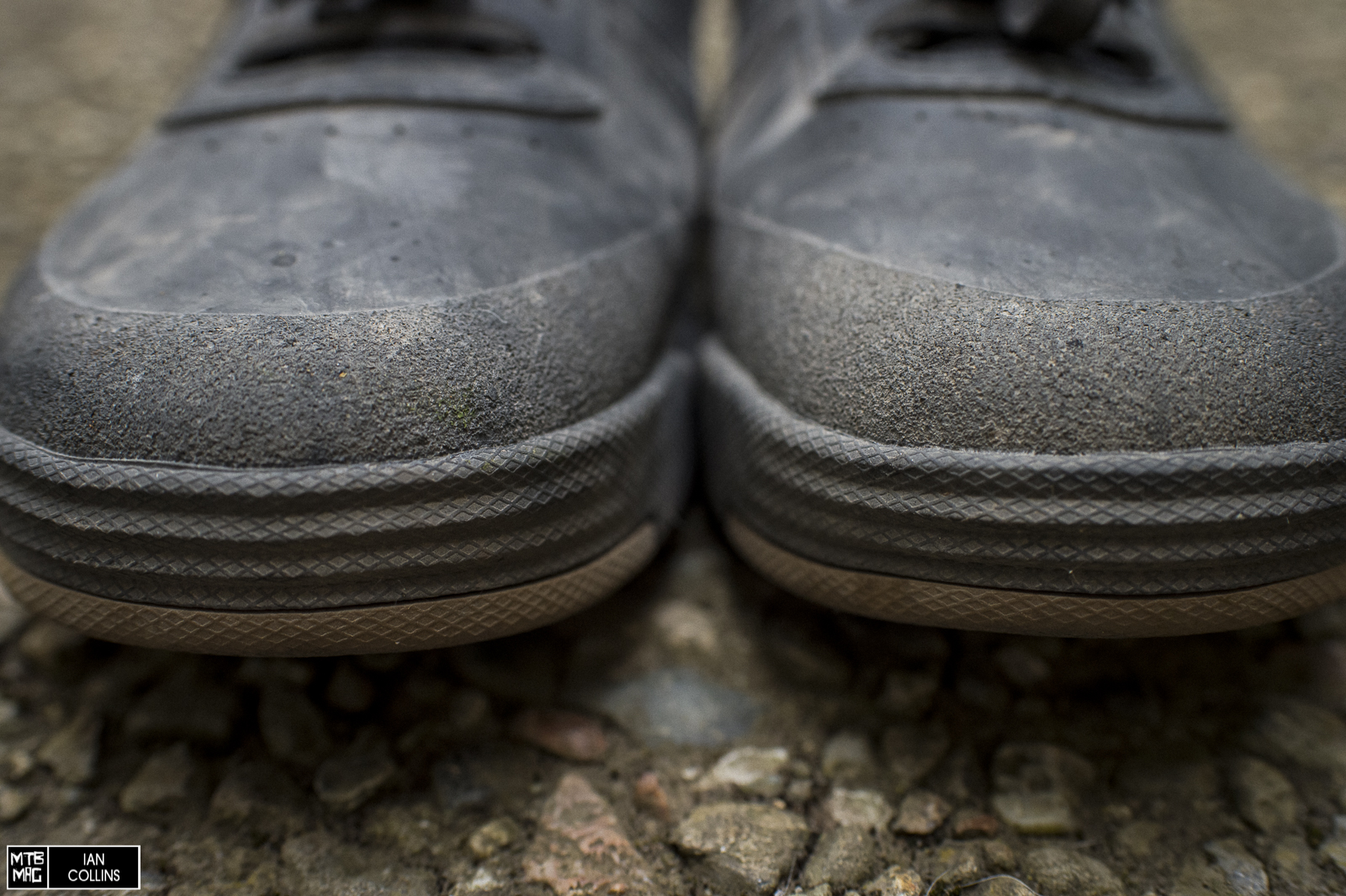
The upper is all synthetic leather, and the toe and heel bumper feature an added layer of tough, gritty material. On the surface, it almost feels like a rhino liner in a pickup truck bed. In any case, it definitely adds some extra protection from rocks and roots when you slack off and don’t keep those pedals level.

The sole itself looks so simple that it almost seems rather unconventional. More on that later…
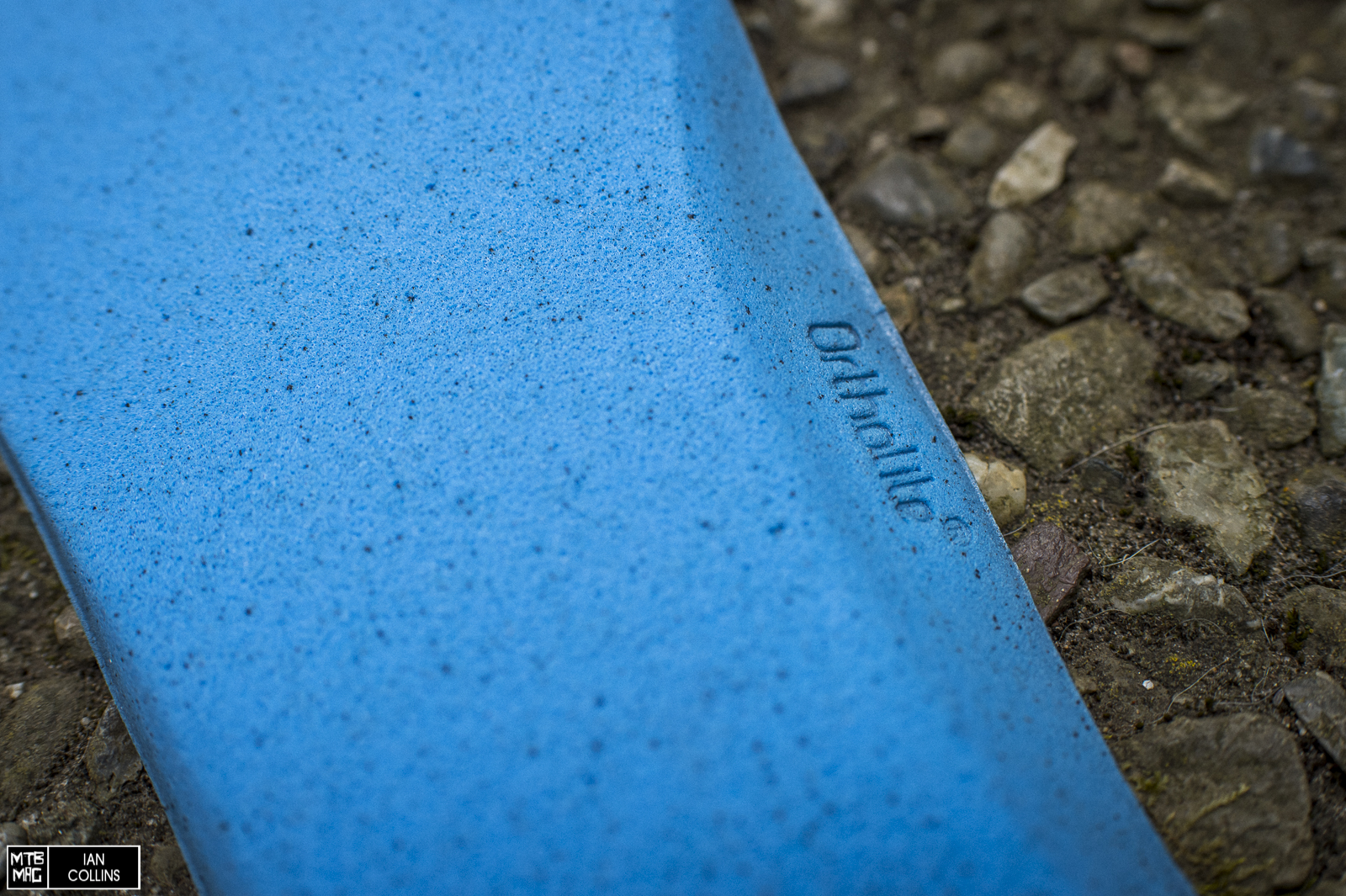
The Ortholite insoles are machine washable and do a nice job of conforming to your foot. I don’t want to make any lofty claims that this footbed is anti-microbial, but most Ortholite insoles are.
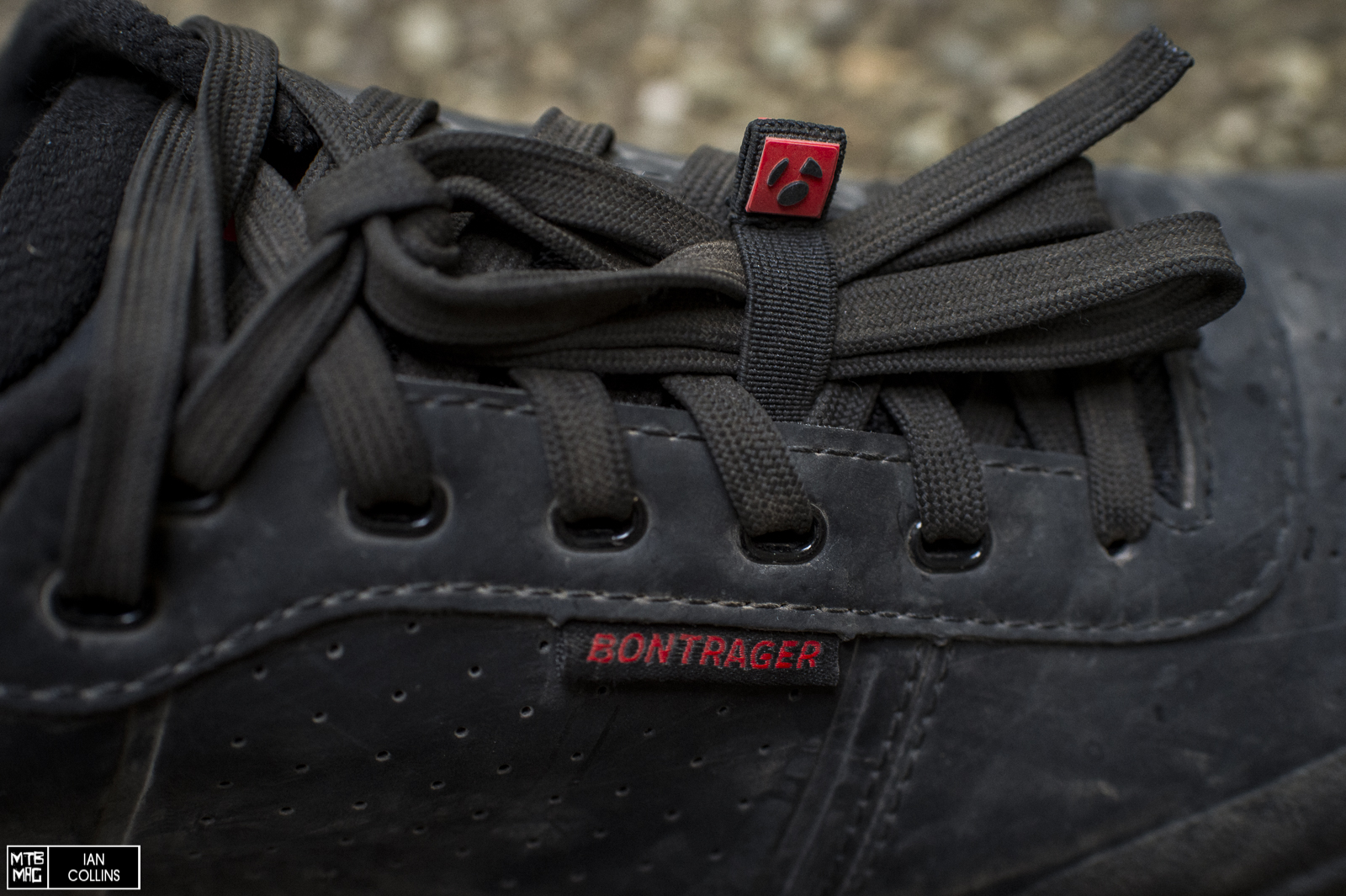
Like many MTB shoes these days, the Flatlines feature a tab to keep the laces from flying around and getting caught in your drivetrain. The laces were extra long, even when wearing ankle braces, so I cut them down and singed the ends with a lighter, to keep them from fraying.
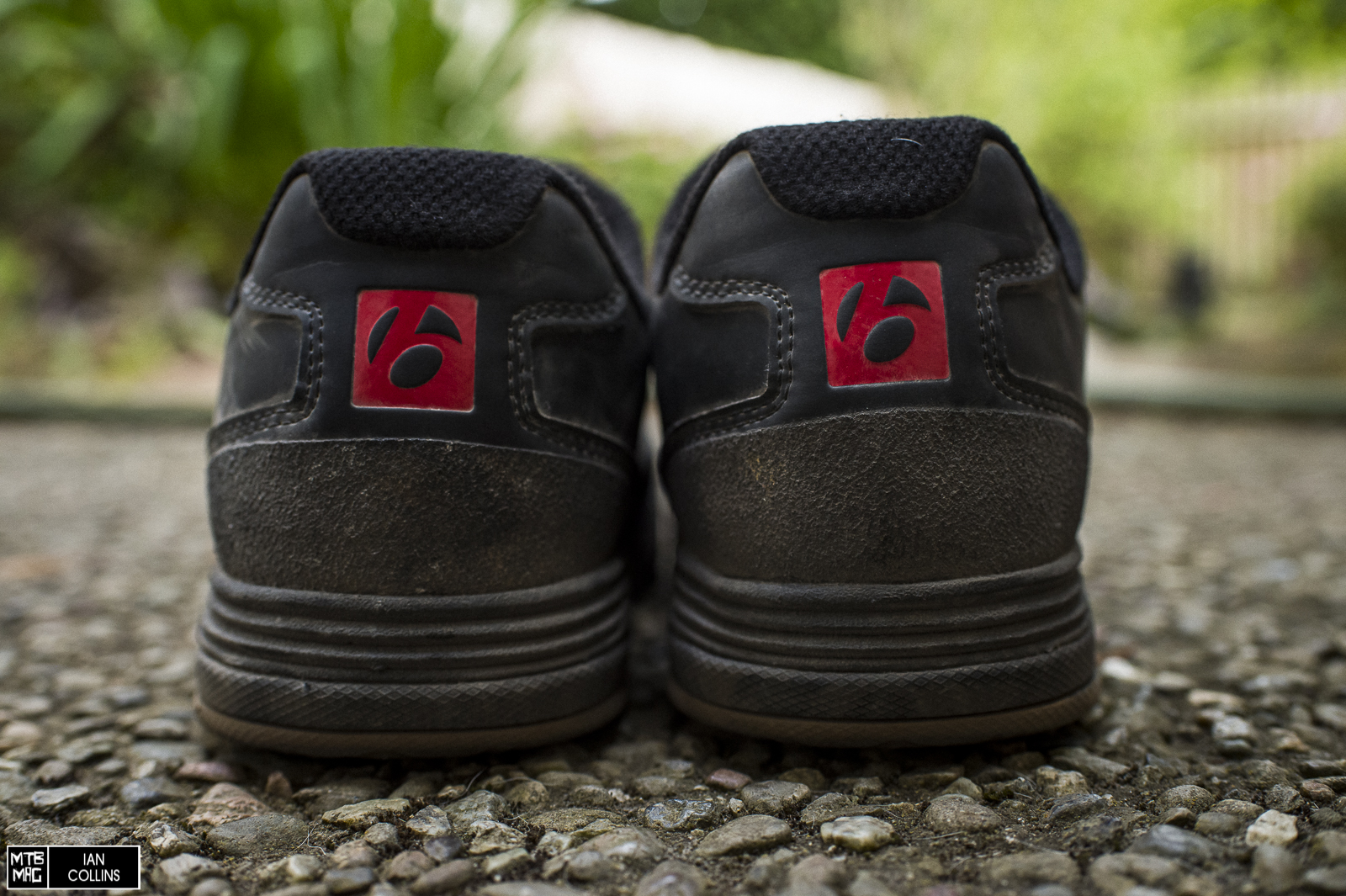
We’d estimate that the Flatlines sat just above your average low-top and just below your average mid-top. They provide a bit of additional ankle and heel coverage and feature quite a bit of heel cushioning via a dense EVA midsole.
On the Trail
Out of the gate, the first thing I noticed about the Flatlines was that they run a bit roomy in the toe box. They feel a bit deep and a touch on the wide side. Unless you have narrow feet, that’s not really a bad thing. My feet are pretty middle of the road in terms of width, but I have really, really high arches (think: ballerina high)…Because of this, and my picky nature, with most of my shoes, MTB or otherwise, I substitute the stock insole for a “Superfeet” brand liner. I rode the included insoles a few times and found them to be up to par, but ultimately preferred my go-to. The actual fit of the Flatline shoe was pretty spot on in terms of accuracy, and they played very, very nicely with ankle braces, leaving no hot spots!
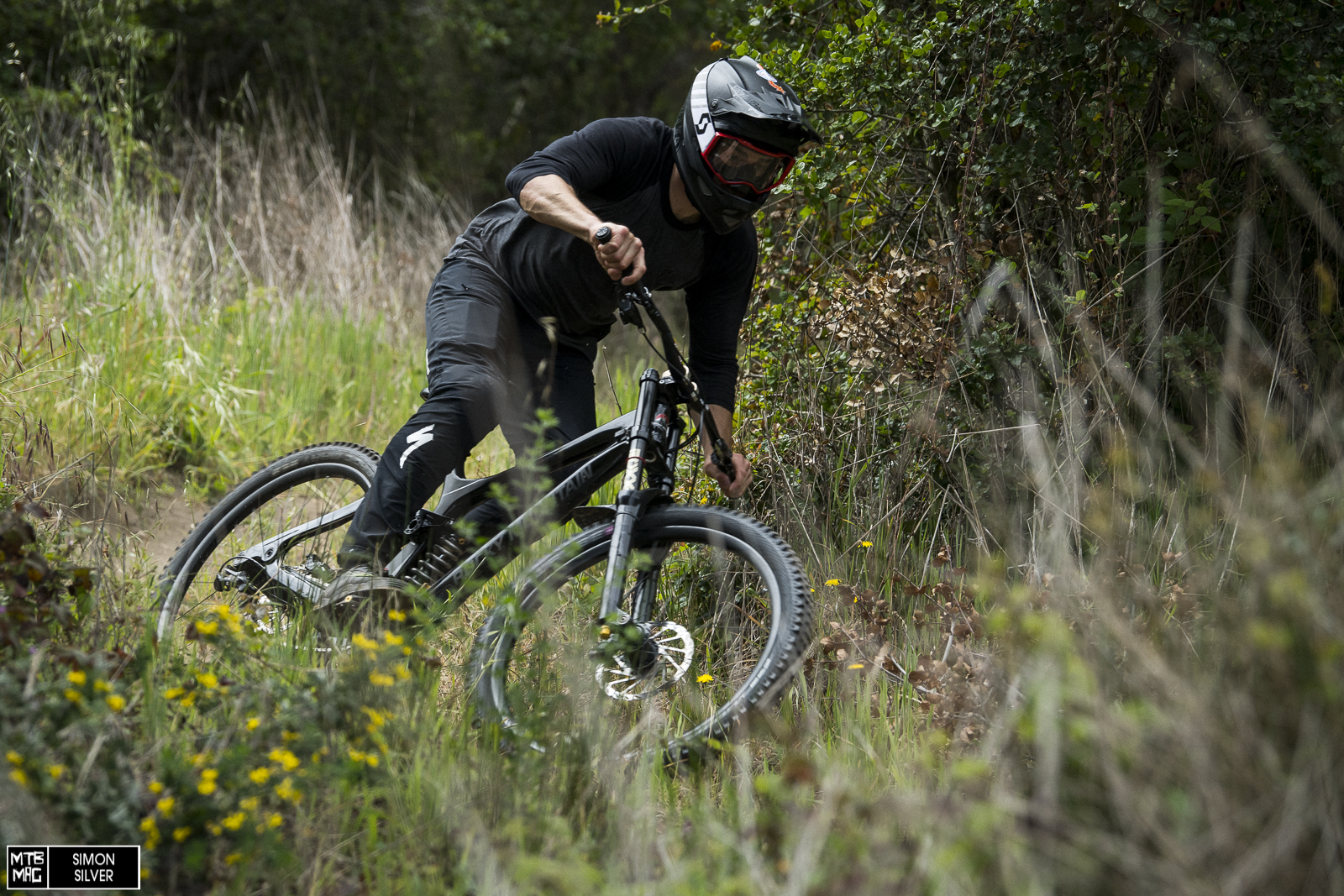
As I mentioned earlier, the pattern on the sole looked so simplistic that I was initially dubious as to how well they’d fare. Lo and behold, there’s more than meets the eye. To unpack that – the section under the ball of your fot, where your pedals rest, is devoid of any sort of deep, grippy pattern. That area seemed a bit smooth and its simple, square, shallow pattern didn’t seem like it would offer that much bite. I would soon find out that was not the case. Bontrager found the perfect rubber compound and layout which struck a nice balance between providing traction and still allowing for foot placement adjustments on uneven terrain. I’ve ridden all too many flat pedal shoes with soles that were so soft and treads aggressive that it was difficult to re-position my foot when it was ill placed. The Flatlines were just right in that regard, which – in my opinion, is perhaps the most important aspect of a flat pedal shoe. Another positive is that the durability of the sole has been phenomenal, and I think that is largely due to the fairly smooth nature of its traction pattern – which is harder for pedal pins to penetrate, tear apart and eventually degrade.

At the toe and heel, the brown rubber compound features a Charlie Brown sweater, zig-zag pattern. This seemed to help quite a bit when hike-a-biking on steep terrain, whether pointed up or down. The cushioning, impact resistance and toe protection were all quite good and the lacing system was excellent, despite the laces being a bit long (better than too short). The Flatlines, like most gravity oriented, flat pedal shoes, didn’t exhibit mind blowing ventilation by any means, but they remained cool enough that I couldn’t complain. I’ve certainly spent time in much warmer shoes.
Overall
A the end of the day, the Bontrager Flatlines have proven to be an excellent option for flat pedal riding. On every day trail rides, they’re truly fantastic. The durability, walkability, traction and comfort was 10/10 good. The sole stiffness and power transfer is just about right, while still offering a comfortable off bike experience. My only very minor gripe was that I had to spend 2 minutes to shorten the laces – a small matter in the grand scheme of things. While they offer solid protection overall, if you’re a super aggressive DH racer with somewhat sloppy tendencies, you may want to look for something with a bit more bulk. With that said, I’m headed to the Killington, Vermont to race DH in the US Open in a few days and I’ve got no hesitation about wearing the Flatlines should I choose Flats over Clipless.
The post [Tested] Bontrager Flatline Shoe appeared first on MTB-MAG.COM.
